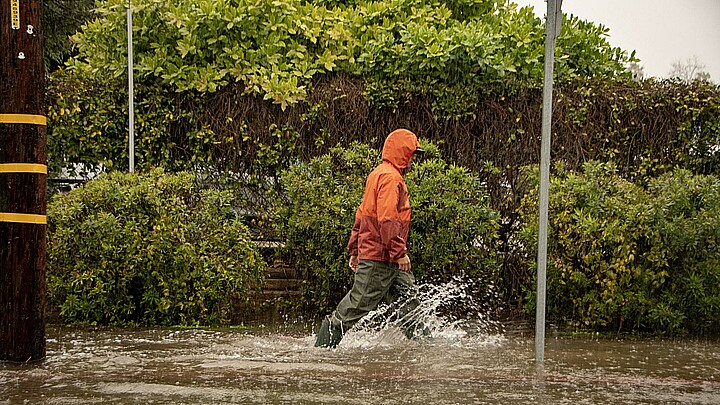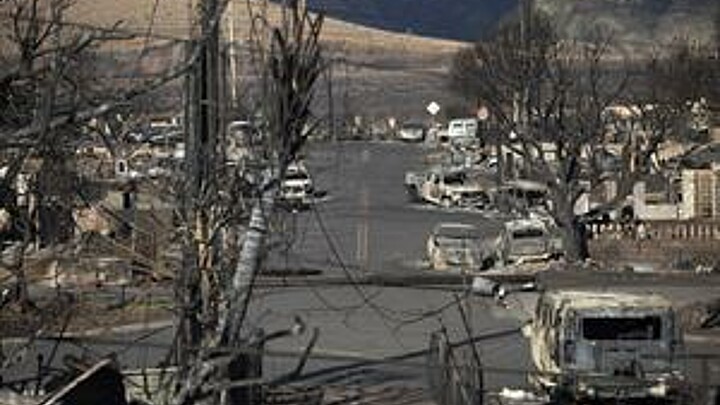Climate
Wildlife managers reject new wolf protection regulations
Washington wildlife managers will not implement a new wolf protection rule that ranchers say would have laid even more responsibility on them to ward off attacks
July 11, 2022 3:57pm
Updated: July 12, 2022 5:13pm
Washington wildlife managers will not implement a new wolf protection rule that ranchers say would have laid even more responsibility on them to ward off attacks.
The Washington Wildlife Commission has also voted 5-4 not to create Chronic Conflict Zones within the state that require more detailed management.
"I think a strict rule at this time would be counterproductive. I think it would be an economic hardship," Commissioner James Anderson said at Friday's meeting. "And frankly, I think it's not really necessary. Rules just for the sake of rules don't make any sense. It's not what governance should be."
Both proposals were under consideration because of Gov. Jay Inslee’s directive in 2019. He ordered the Washington Department of Fish and Wildlife to euthanize fewer wolves for conflicts with livestock.
“What the commission was trying to do was misguided so I think these were good decisions,” said Scott Nielsen, a rancher and president of the Stevens County Cattlemen’s Association. He is also a board member of Washington Cattle Producers.
Anderson and several other commissioners said data compiled by WDFW shows that wolf recovery is working under existing management practices.
Since wolves were re-introduced into neighboring states and settled in Washington in 2008, the population has grown rapidly. There was a minimum of 206 wolves and 33 packs by late 2021, according to an agency report.
Anderson was joined in voting “no action” at the July 8 special meeting by Commissioners Don McIsaac, Kim Thorburn, Molly Linville and Barbara Baker.
Nielsen disagrees that things are working well in wolf management. He said WDFW seems to be trying harder to appease Inslee than adhere to its own rules.
Inconsistencies in application of the plan, and reluctance to remove problem wolves, has eroded the trust of three ranching families in Northeastern Washington with the highest losses enough that they will no longer work with WDFW, he said.
Therefore, reports that cattle depredations are down isn’t necessarily true, he said.
Neilsen said when losses do occur, WDFW needs to compensate ranchers without dictating how they run operations. To avoid that control, many ranchers are not seeking reimbursement for losses so those numbers are also faulty, he said.
“The only way you can make this work fairly is to rebuild trust,” Nielsen said. “And the only way you do that is to truly manage wolves by the plan.”
The plan allows WDFW to kill wolves if they have injured or killed livestock three times within the last 30 days or four times within 10 months.
On Friday, Commissioners Tim Ragen, Melanie Rowland, Lorna Smith and John Lehmkuhl voted for more wolf protection measures.
Rowland and Smith said work would continue toward that end.
“We’ve done a lot, but we can and should do more,” said Smith.
She said greater regulation of ranching activities was necessary. She said the commission needs “to up their game” by requiring that range riding mean more than just “getting in a pickup or on the back of a horse.”
“We need more education so we can be clear on what expectations are,” she said.
Rowland wants to see WDFW focus more on catching poachers. She believes the agency needs to get a better surveillance system in place.
Under the proposed rule, WDFW would have been restrained from killing wolves that attacked livestock until it could be proven that ranchers had taken all possible steps to prevent attacks.
Nielsen said ranchers must already show that non-lethal measures did not work before the state authorizes a wolf hunt.
He said WDFW now even requires that ranchers keep a log of the time they spend in the field. If they do not produce a detailed account of their watchdog activities, they cannot qualify for compensation when there are losses. That log even has to note their movement on private lands, he said.
Nielsen said establishment of conflict zones would also have likely led to even more requirements of ranchers.
Before the vote was taken, commission chair Baker told the panel that she would start ending meetings if the discourse became uncivil. Members of the public had contacted her, she said, concerned about public acrimony amongst the commissioners at a June meeting.
"When our public starts talking about our behavior instead of our positions, I think it's time to step in and ratchet it down a bit," she said.










